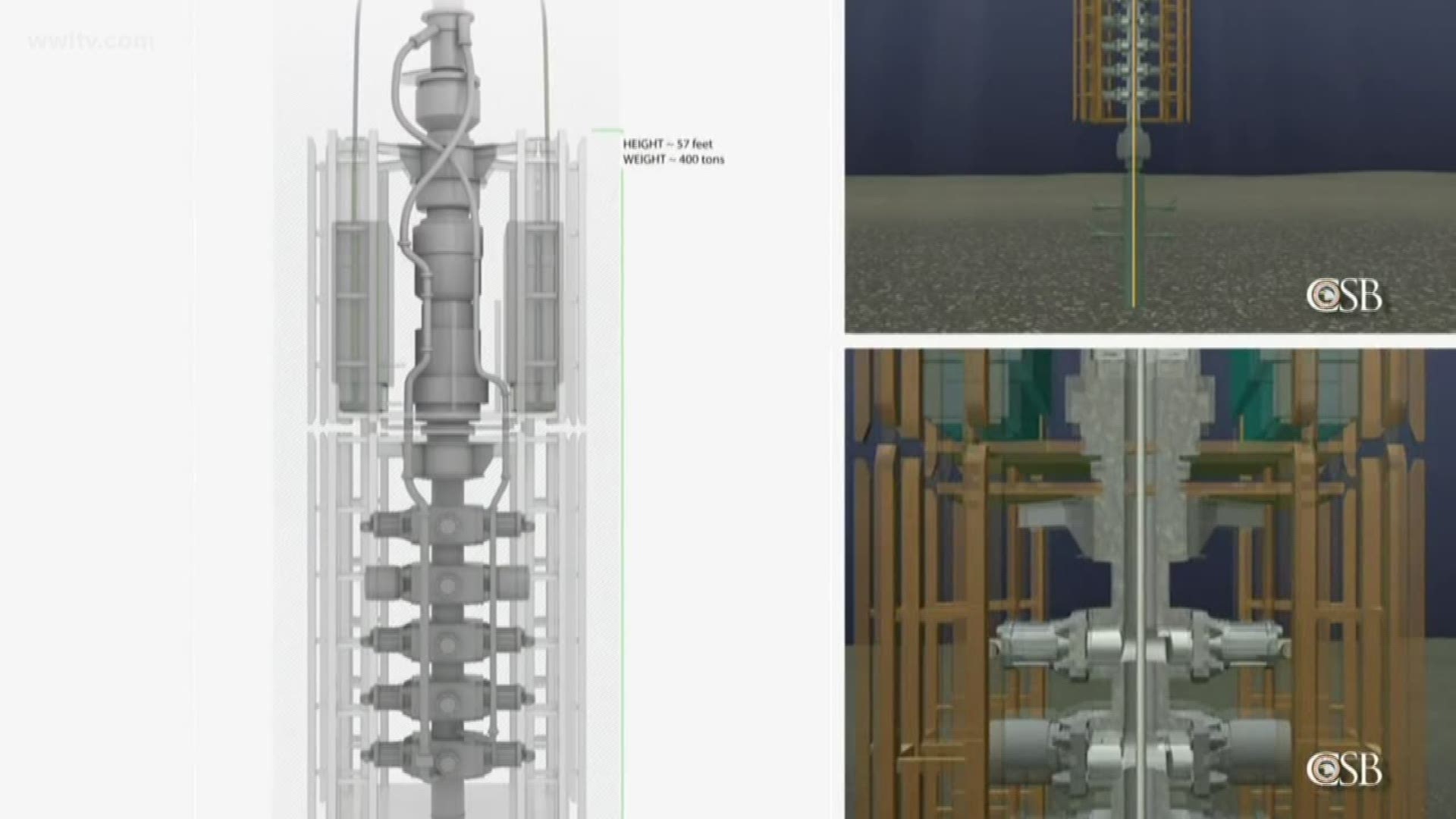PORT FOURCHON, La. — President Donald Trump’s offshore safety agency, headed by oil and gas industry insiders, released a new rule for oil drilling safety Thursday that eliminates regulations imposed by the Obama administration in the wake of the devastating Deepwater Horizon explosion.
Trump’s Interior Secretary David Bernhardt is a former oil and gas lobbyist. The director of the Bureau of Safety and Environmental Enforcement is Scott Angelle, who as Louisiana’s lieutenant governor fought a drilling moratorium after the 2010 BP oil spill.
They announced the so-called “final Well Control Rule” in Port Fourchon. The rule is also known as the “BOP Rule” because focuses on regulating blowout preventers, massive stacks of valves and pistons placed over a wellhead and designed to shut in a drilled well if oil and gas starts flowing up uncontrollably.
The Deepwater Horizon’s BOP infamously failed to close in BP’s well when it blew out April 20, 2010.
“Free of undue regulatory burden while ensuring that operators conduct Outer Continental Shelf activities in a safe and environmentally responsible manner, today’s rule will fuel and sustain responsible energy exploration and production,” Angelle said.
BSEE said 80 percent of the Obama-era rule remains unchanged from what was adopted in 2016 over objections from the oil industry. The agency said it expects several new provisions in the rule to make drilling safer – for example, by requiring fewer connections between a drilling rig and its BOP and by requiring different types of hydraulic rams to close off the space where oil could blow out of a well.
Several connections between Deepwater Horizon and its BOP failed, and that BOP’s sheer rams failed to cut cleanly through a drill pipe to seal in the well.
But the changes adopted Thursday are also expected to save the industry hundreds of millions of dollars over the next decade by dialing back requirements for companies to set up onshore control centers to monitor their offshore drilling work in real time – something that major oil companies already do -- and by eliminating a new government process for approving independent, third-party organizations to monitor drilling safety.
FOR MORE INFO: Groups: EPA has dragged heels on oil dispersant rules
Environmental group Oceana criticized the new rule for “gutting” the limited protections put in place in 2016.
“Today’s announcement is a major step backward in offshore drilling safety,” Oceana campaign director Diane Hoskins said. “Our government shouldn’t be catering to the demands of the oil industry at the expense of public and environmental safety. Focusing on industry cost-savings entirely disregards the safety and environmental benefits the rule was intended to provide in the first place. More drilling and less safety is a recipe for disaster.”

